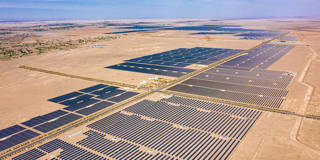Just when the world desperately needs more international cooperation to address common problems, the principal mechanism for coordinating such efforts is all but defunct. Its decline is both a harbinger and a cause of the global turmoil that awaits.
NEW YORK – The world is facing massive common challenges that require cooperative solutions. The COVID-19 pandemic has yet to end, and work to prevent another pandemic has only just begun. Rising debt burdens are endangering lower-income countries’ economic prospects and their people’s well-being. Spiking food prices and the disruption of grain deliveries since Russia’s invasion of Ukraine have increased the risk of hunger in many parts of the world. And, on top of it all, governments and businesses urgently need to convert their net-zero commitments into measurable reductions in greenhouse-gas emissions.
These are daunting problems. But the biggest problem of all is that rising geopolitical tensions and war have now stymied the principal mechanism, the G20 leaders’ forum, for organizing global responses to them. When strategic clashes over national security and economic and technological primacy loom, effective international cooperation becomes almost impossible, and that increases risks for us all.
The G20 was created by US President George W. Bush (building on an existing regular summit for finance ministers and central bankers) to address the 2008 global financial crisis. In 2008 and 2009, world leaders came together and pledged more than $1 trillion to stabilize the global economy, calm markets, and financially reinforce the International Monetary Fund and the World Bank.

NEW YORK – The world is facing massive common challenges that require cooperative solutions. The COVID-19 pandemic has yet to end, and work to prevent another pandemic has only just begun. Rising debt burdens are endangering lower-income countries’ economic prospects and their people’s well-being. Spiking food prices and the disruption of grain deliveries since Russia’s invasion of Ukraine have increased the risk of hunger in many parts of the world. And, on top of it all, governments and businesses urgently need to convert their net-zero commitments into measurable reductions in greenhouse-gas emissions.
These are daunting problems. But the biggest problem of all is that rising geopolitical tensions and war have now stymied the principal mechanism, the G20 leaders’ forum, for organizing global responses to them. When strategic clashes over national security and economic and technological primacy loom, effective international cooperation becomes almost impossible, and that increases risks for us all.
The G20 was created by US President George W. Bush (building on an existing regular summit for finance ministers and central bankers) to address the 2008 global financial crisis. In 2008 and 2009, world leaders came together and pledged more than $1 trillion to stabilize the global economy, calm markets, and financially reinforce the International Monetary Fund and the World Bank.